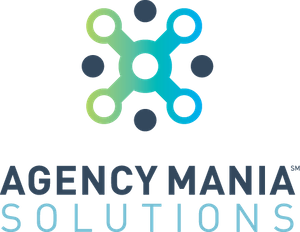
Looking for Better Relationships? Ask Better Questions

“Judge a man [or woman] by his [or her] questions rather than his [or her] answers.” That famous quote is often wrongly attributed to French philosopher Voltaire. The quote is by Pierre-Marc-Gaston, Duke of Lévis (1764-1830), a politician who wrote his thoughts about morality following the French Revolution. It was a time when questioning authority and everything else mattered greatly, and when people often had more questions than answers.
Fast-forward to today, as we face a business revolution fuelled by incredible economic and competitive pressures. Relationships between brands and their agencies share a similar dilemma: questions are many, but answers can be scarce. Simply stated: we know things are not working as they should between clients and agencies, but we don’t always know why. The solution is in asking better questions and quickly getting to the root cause. Let’s review how:
Better scope questions
The planning and scope alignment process that contributes to clarifying what work will be produced and what resources will be needed (financial, human, or both) has drastic implications on work performance and the financial construct of the relationship. If you don’t get the scope and financials aligned from the outset, little really matters down the road. Aligning on the planning and scope process is the important building block. To get it right, advertisers and their agencies should ask the following questions:
- What type of approach will best support our needs for transparency and accountability?
- What level of scope detail is required to accurately estimate required agency budgets?
- How will we measure and quantify the value of a more structured scoping process?
- What level of tracking and reporting is essential to support the effective and ongoing use of agency resources throughout the year?
- How do we know we are getting fair value for the work and resources contracted?
- What information is most actionable and valuable to support marketing stakeholders?
- What type of flexibility is required to handle changes in our business or expectations?
Better brief questions
The briefing process is notoriously known to prompt a rich yet necessary dialogue between the client and the agency to start work based on crystal-clear objectives and expectations. Like scoping, the briefing process sets up the partnership for success, when done properly. The more clarity obtained up front, the better the work and the most effective use of agency resources later on. Advertisers and their agencies should ask the following questions:
- What constitutes a strong quality brief as defined by its intended audience (the agency)?
- How rigorous should that briefing process be to ensure consistency?
- What is the right balance of information between including too much or perhaps too little?
- How collaborative should the briefing be to tease out the required details?
- What level of quality control and review should be instituted to improve the brief?
Better relationship questions
Most advertisers conduct performance evaluations yearly or twice a year to evaluate the health of the partnership and identify areas of improvement. This process is essentially based on a series of closed- and open-ended questions that allow both parties to provide constructive feedback and agree on a set of actions. But not all questions are equal. Many performance evaluations fail to deliver truly actionable insight because they simply ask the wrong questions. Advertisers and their agencies should ask the following questions:
- Are we currently set up to realise top value from this partnership?
- Are we fully aligned behind a clear, reasonable set of operating and partnership principles?
- Are we measuring the work relationship based on tangible metrics?
- What are the greatest roadblocks in our partnership today?
- What mutual improvements should we make that we believe will have the greatest and most immediate impact on our work relationship?
Let’s face it: asking the right questions can be uncomfortable. We know that, whether it applies to our professional or personal lives. Yet if done respectfully and with the right intent, asking tough questions can remove unnecessary tension and address potential disagreements. It also leads to better understanding and collaboration. In business, the questions we ask are often more important than the answers we obtain, and pave the way for the answers we need to strengthen the partnership.
Let’s ask better questions.










